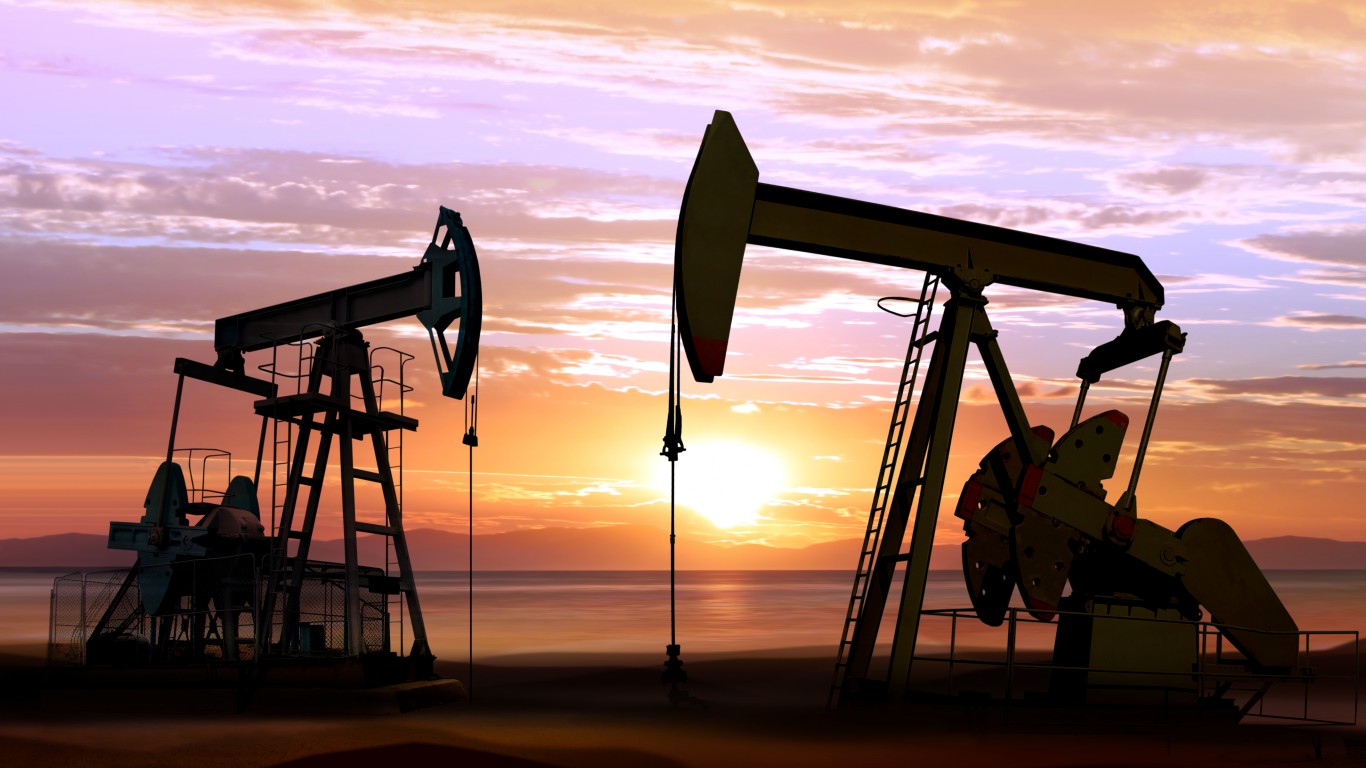
Chesapeake Energy (NYSE: CHK) has been on a long slide down for the better half of a decade. Recent volatility in oil prices hasn’t helped the company — or oil stocks in general. It’s tough to call a bottom for Chesapeake Energy stock. While the markets are recovering handily, it could still sink even lower.
Chesapeake Energy stock currently trades around $14 a share and has underperformed the S&P 500 year to date. In 2014, on a split-adjusted basis, the stock price was just below $6,000. Since then shares of Chesapeake Energy have lost 99% of their value.
Chesapeake currently has a market cap of $136 million. In 2014, the market cap was closer to $20 billion. It’s hard to make a case for this as a stock to buy, especially when considering its past.
Recovery?
After oil prices moved sharply lower in a never-seen-before market event in April, investors may be fearful of getting back into oil companies. Since then oil prices and the major players in the industry have made a comeback, but the future is still uncertain.
Oil prices are indeed recovering, but the recovery still has a long way to go. Crude oil started the year closer to $60 per barrel, and we are a far cry from there.
Even with oil prices recovering, the main beneficiaries are the major oil and gas companies like Exxon Mobil (NYSE: XOM) and Chevron (NYSE: CVX). Smaller oil production companies like Chesapeake will benefit some, but survival is still a primary concern.
As the U.S. economy begins the process of reopening, oil prices appear to be rising in anticipation of increased demand. Gas prices have been sinking over the past two months, but a reversal could be in place as lockdowns are lifted and more Americans want to get out of the house. Historically, gas prices rise during the summer as more consumers travel, and perhaps a lesser version of this trend could be on the way.
Summertime Blues
Summertime is when most Americans go on vacation. With consumers largely avoiding airlines in an attempt to curb the spread of COVID-19, it makes sense that more people would gas up their cars and hit the road, rather than take to the skies. In fact, automobile traffic across the country has already begun increasing with June just around the corner.
If more people are driving during the summer then oil prices should rise, right? Perhaps, but there’s an underlying problem with this assumption.
As more metropolitan areas return to a “new normal” in terms of traffic, energy firms should see a boost. However, the reopening of major cities is not uniform. Cities like Los Angeles are more uncertain of their reopening timeline, whereas cities like Houston are already in the process of opening up.
Another major factor to consider is that nearly 39 million Americans have filed for unemployment. This means that even as people start returning to their workplaces, about 10% of the U.S. population will not be commuting to their jobs every day. Also the wages from these jobs could have been used for vacation travel. Until more people feel comfortable about their employment situations, travel volume will remain deflated. For oil prices to pick up and stay up definitively, traffic will have to pick up as well.
So Where Does Chesapeake Stand?
Currently, Chesapeake is between a rock and hard place, and not because it’s headquartered in Oklahoma City. Although there could be some positive catalysts coming over the summer as the economy reopens, it won’t recover right away.
Many companies have resorted to rebuilding their balance sheets during this pandemic. Chesapeake’s problem is that its balance sheet was never really strong to begin with. At the end of the quarter, its cash and cash equivalents totaled $82 million, which is not bad compared to a $136 million total market cap. However, when total assets are only $7.8 billion and total liabilities are $11.7 billion, the picture looks bleak.
The key to surviving this pandemic is outlasting it. Cash and liquidity are king. Chesapeake may outlast the coronavirus, but at what cost? Its debt burden might sink it regardless.
Thank you for reading! Have some feedback for us?
Contact the 24/7 Wall St. editorial team.



